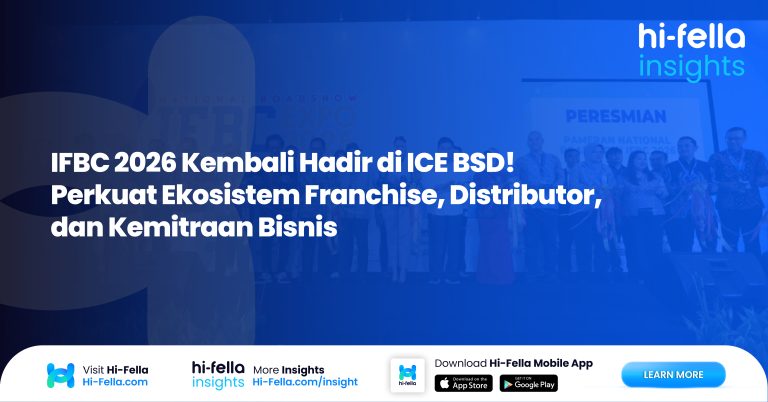Table of Contents
Hampir setiap saat, kita dihadapkan pada berbagai jenis iklan, entah itu di TV, baliho yang ada di pinggir jalan, surat kabar, radio, maupun di internet. Seringkali iklan tersebut berasal dari perusahaan swasta, tetapi tidak jarang pula juga kita menemukan iklan yang dipasang oleh pemerintah.
Pertanyaannya, mengapa perusahaan masih memerlukan iklan dan bagaimana fungsi iklan bagi pemerintah dan perusahaan?
Untuk penjelasan lebih lanjut, mari kita simak artikel berikut ini!
Bagaimana Fungsi Iklan Bagi Pemerintah dan Perusahaan

Sumber: Dunia Periklanan
Iklan bagi pemerintah memiliki peran utama dalam menjangkau masyarakat secara luas melalui informasi yang penting untuk diketahui oleh masyarakat. Berbeda dengan iklan perusahaan swasta yang berfungsi untuk mempromosikan produk atau jasa mereka.
Dilansir dari jurnal International Council for Ad-Self Regulation, berikut ini adalah fungsi-fungsi iklan bagi pemerintah:
1. Mengkomunikasikan Kebijakan dan Program
Pemerintah memanfaatkan media iklan untuk mempercepat penyebaran kebijakannya kepada masyarakat luas. Contohnya adalah iklan tentang transisi ke televisi digital atau tentang program Bantuan Langsung Tunai (BLT)
2. Mendorong Perubahan Perilaku
Pemerintah sering menggunakan iklan sebagai alat untuk mengubah perilaku masyarakat. Sebagai contoh, kampanye penggunaan masker, menjaga jarak, dan kebiasaan mencuci tangan selama masa pandemi.
3. Pendidikan dan Penyuluhan
Iklan layanan masyarakat menjadi sarana pemerintah untuk mendidik masyarakat, seperti memberikan informasi tentang pencegahan demam berdarah.
4. Transparansi Informasi Publik
Iklan juga digunakan oleh pemerintah daerah setempat untuk transparansi informasi, seperti menampilkan realisasi APBD di videotron, koran, atau baliho, memberi wawasan kepada masyarakat tentang penggunaan dana publik.
5. Promosi Pariwisata Daerah
Pemerintah daerah juga dapat mengiklankan agenda pariwisata tahunan mereka, memberitahukan event yang akan datang misalnya satu bulan ke depan kepada masyarakat.
6. Dukungan terhadap UMKM
Pemerintah juga mengiklankan produk Usaha Mikro Kecil Menengah (UMKM), bukan untuk keuntungan pribadi, melainkan untuk meningkatkan pengenalan dan pendapatan UMKM lokal atau di daerah setempat.
7. Promosi Tujuan Politik
Sebagai lembaga politik, pemerintah juga menggunakan iklan untuk tujuan politik mereka, contohnya seperti mempromosikan prestasi pemimpin daerah.
Fungsi Iklan Bagi Perusahaan

Sumber: JatisMobile
Iklan memainkan peran krusial dalam strategi bisnis perusahaan, berikut ini adalah beberapa fungsi iklan bagi perusahaan:
1. Memperkenalkan Produk ke Pasar
Iklan bagi perusahaan berfungsi utama sebagai sarana untuk memperkenalkan produk mereka kepada audiens yang luas.
Selain itu, iklan juga membantu perusahaan untuk memberikan informasi terhadap masyarakat agar mereka mengetahui tentang nama merek dan keistimewaan produk, yang kemudian mempengaruhi keputusan pembelian mereka.
2. Meningkatkan Kepercayaan Konsumen
Selanjutnya, iklan juga berperan dalam meningkatkan minat pembelian dengan meyakinkan calon pembeli tentang keunggulan dan keunikan produk mereka dibandingkan produk atau layanan dari kompetitor.
3. Menegaskan Keberadaan di Pasar
Fungsi lainnya dari iklan untuk perusahaan yaitu termasuk mempertahankan eksistensi produk mereka di pasar dan memastikan agar pelanggan tetap setia atau loyal dan tidak beralih ke merek lain.
4. Membangun Kesadaran Merek
Melalui iklan yang terus-menerus, perusahaan berusaha menciptakan kesadaran merek di benak konsumen dan berusaha untuk menjadikan produk mereka sebagai pilihan utama dari konsumen, tentunya dengan dukungan strategi harga dan kualitas dari produk atau jasa tersebut.
5. Menciptakan dan Mengubah Citra Merek
Pembangunan dan perubahan citra merek juga penting, dengan iklan yang menciptakan citra khas dan membedakannya dari pesaing.
Sebagai contoh, jika sebuah merek ingin dikenal sebagai ramah lingkungan, iklan mereka akan menonjolkan komitmen terhadap keberlanjutan dan penggunaan bahan yang ramah lingkungan.
6. Memberikan Nilai Lebih
Memberikan nilai lebih melalui iklan adalah strategi pemasaran yang membantu merek tidak hanya bertahan di pasar yang kompetitif tetapi juga lebih menonjol di antara produk atau layanan yang ada di pasaran.
Iklan yang dirancang dengan baik dan efektif, mampu menambahkan aspek eksklusivitas, gaya, dan daya tarik pada sebuah merek. Hal ini dilakukan dengan menciptakan pengalaman yang memikat dengan target audiens, sehingga tidak hanya menarik perhatian mereka, tetapi juga meninggalkan kesan yang mendalam.
7. Sebagai Pendukung Strategi Pemasaran
Iklan merupakan bagian dari strategi pemasaran oleh perusahaan, seperti dapat melengkapi upaya penjualan secara langsung yang didukung oleh penetapan harga yang cocok dengan target pasar, dan pemberian bonus atau hadiah untuk meningkatkan ketertarikan konsumen terhadap produk yang dijual.
Itulah penjelasan mengenai fungsi iklan bagi pemerintah dan perusahaan yang perlu Anda ketahui. Secara umum, iklan memainkan peran penting dalam mencapai tujuan strategis pemerintah dan perusahaan.
Dengan memahami bagaimana fungsi iklan bagi pemerintah dan perusahaan serta dampak positif iklan, bagi pejabat pemerintah, eksekutif perusahaan, dan para pemimpin bisnis dapat mengoptimalkan penggunaannya untuk mendukung dan mencapai tujuan mereka.








